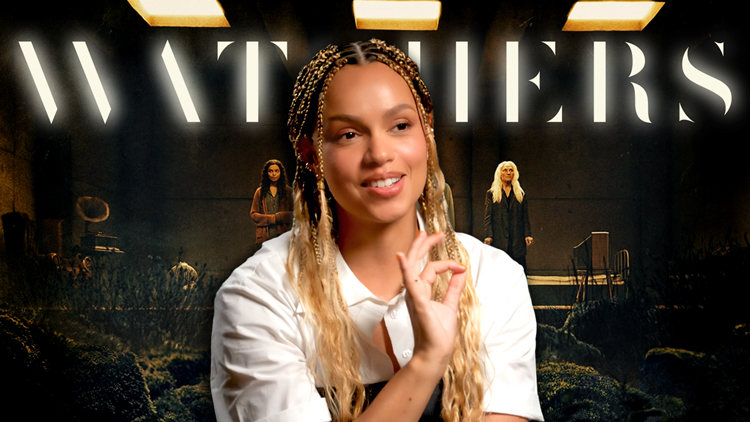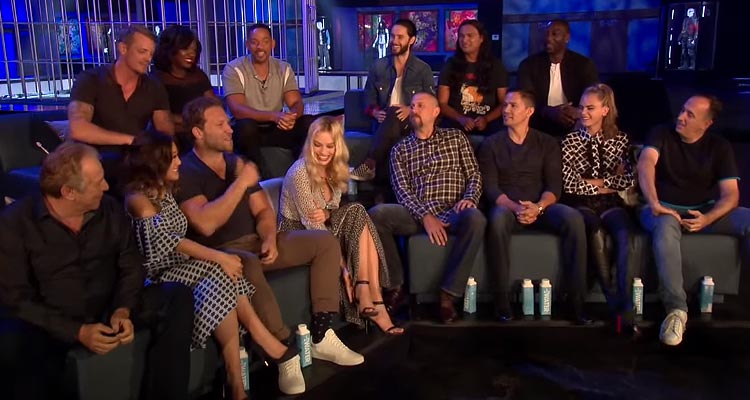By Carlos Otero.
I had an amazing time covering the New York Press Conference for SUICIDE SQUAD, listening to great talents such as Director David Ayer, Will Smith (DeadShot), Viola Davis (Amanda Waller), Jared Leto (The Joker) Margot Robbie (Harley Quinn), Jay Hernandez (Diablo), Joel Kinnaman (Rick Flag) and more.
Read below what they shared about their epic journey making this film and bringing these DC comic-book villains to life.
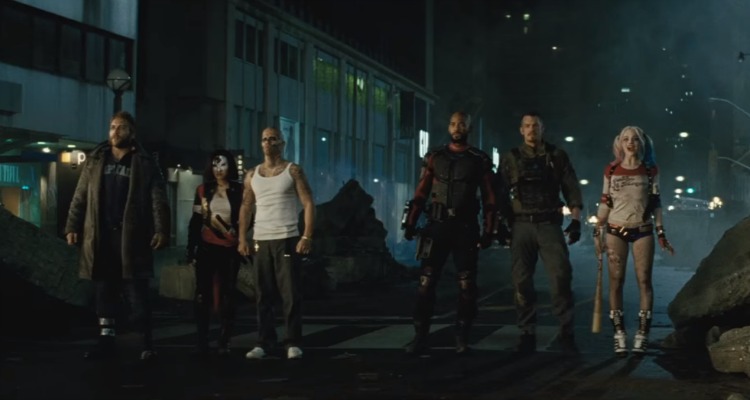
Q: What is it like for you guys the actors, directors and producers in bringing these characters to the big screen and balancing what comic book fans already know and what you guys wanted to bring to the characters?
Will Smith: I think Jared should go first since he had the hardest job in the whole movie.
Jared Leto: It’s kind of like giving birth out of your prick hole. For me it was a role of a lifetime. It was so much fun playing the joker, I could easily play the joker a couple of more times and retire. You guys seemed as you where having all of the fun in the movie.
Will Smith: We were really enjoying it, David Ayer has an interesting process of getting actors into their characters.
Jared Leto: It’s called manipulation.
Will Smith: Manipulation, domination and torture. We all got in a room and we essentially had therapy. We got really close in our triumphs, tribulations and trials then at the most opportune moment, Joel Describes it best.
Joel Kinnaman: He would completely betray us. He would betray that trust. Anyone would get a unique reaction
David Ayer: It’s a process it’s like a gymnasium for acting as well. I needed these guys to feel like best friends on camera and when you’re with your best friends you share secrets. You talk about your inner life to a really close friend and I wanted them to have that energy and the fastest way to get there was to have them beat the hell out of each other’s secrets.
Jared Leto: That’s also how you start a cult.
Adam Beach: We would all show up for training we were fighting and hurting each other and next thing David would show up.
Joel Kinnaman: What you were doing, I don’t want to categorize that as training
Adam Beach: David was a champ, he would show up. He would train with us, beat us up. There was this moment where he was sparring with Karen and she got it in the nose.
Karen Fukuhara: After he punched me he said you got to block your face Karen.
Adewale Akinnuoye-Agbaje: David Ayer made me push so many weights to get big. When I got to the size he desired for Killer Croc he said “Now you have to fight Karen.” For her size she beat the crap out of Croc.
Karen Fukuhara: I could go all out because Adewale is so big and strong; I could punch all the way.
Q: What was the most challenging aspect about making this movie, were you mildly injured throughout any of the scenes?
Will Smith: When you are 47 no injury is a mild injury. I tore my calf muscle a couple of weeks in. what was terrible about it is that I did it while doing nothing, we were sparring and I stepped back to make a shot and my calf popped and people could hear it and everyone reacted to it. Whatever that sound was it was not a good sound. The Doctor told me I was down for 6 weeks. On a movie like this 6 weeks can click off a significant amount of money and I wasn’t going to pay for it. It was really scary to be in that position to be in Suicide Squad and to not deliver the way I wanted to.
Margot Robbie: I had less layers to hide and padding. I thought I broke my rib at one point but I actually just tore the muscles off my rib instead of breaking them. It’s fine, it was towards the end. The hardest part wasn’t the physical side, it’s the mechanical side and it’s challenging. It was rewarding and fun. The emotional stuff was definitely more difficult, exposing my most vulnerable side and in front of everyone in the room. That was incredibly hard. Trying to figure out the dynamic between Harley and Joker and figuring out why is she devoted to this guy. He tries to kill her occasionally, it was things like that it me a little while to get my head around.

Q: Can you talk about bringing humanity and humor into the mayhem?
Jared Leto: David was great because from the beginning, it was clear what he wanted to do something different and special. He wanted to make something that was something we would all be very proud of. I can get this sense from him that he was willing to go all lengths in order to get that. It was both a little scary but also really exciting. He is not only the director but also the writer of the film and I was surprised by how much freedom he gave everyone to just go completely fucking crazy. What I thought was really genius about David is he was always looking for the accident, he was always looking for the mistake and embracing that. For Margot and I there was a lot of humor, there were a lot of funny things that I thought were funny in a sick and twisted way but he was really wonderful. Thank you David!
Adewale Akinnuoye-Agbaje: When David and I first had a discussion and he presented Killer Croc with extensive prosthetics, my first question to him was is anyone actually going to know I’m in there. He said absolutely because he really wanted an actor that can bring the soul of the creatures to life and I think with all of us these are villains with souls and I think that indicative of his vision and there’s a beautiful moment in the movie where Killer Croc has a very easy punch line that he’s ugly but he said “I’m beautiful”. It sends a statement when a crocodilian, reptilian black man, who says, “I’m beautiful” about acceptance. I think in this kind of genre that’s very fearless and bold, to make humane statements.
Adam Beach: He wasn’t humane on set because in his trailer it was all about cannibalism, he would listen to cannibal chants on his phone.
Will Smith: Adewale took it very serious, he would watch crocodile videos and cannibalism and I think as a cast we have a question and Adewale should answer this question honestly and once and for all did you eat one of your assistance? There was an assistant who’s been missing named Michael and we all think you ate him.
Adewale: I got a surprise for you, he’s in your trailer, wrapped in a bow and with a big smile. I think we all took our characters very seriously
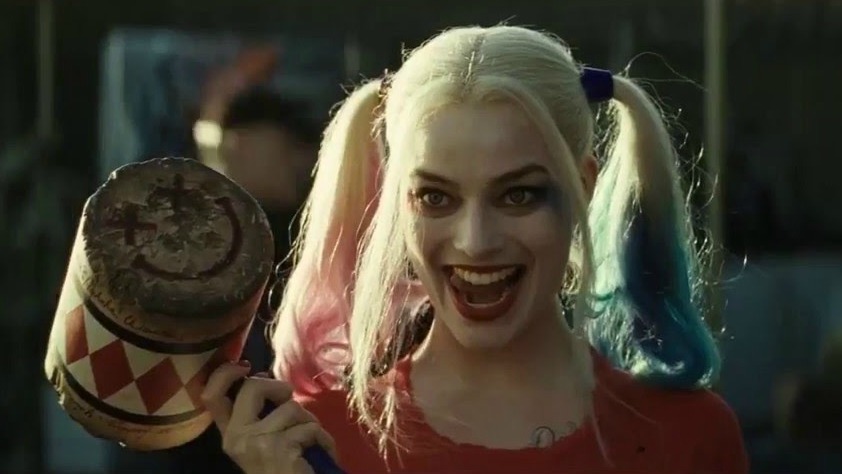
Q: What are the ways you tapped into playing your characters and is there a way you can identify into playing these characters?
Margot Robbie: The thing that I found really helpful into filling in the gaps was we had an amazing resource with the comic books but there are still little gaps in the back-story and things you need to fill in yourself. I watched a couple of Ted Talks, on Schizophrenia amongst a bunch of other things but that really helped because the women that were doing these talks were so intelligent. They were professors and Harley needs to be wickedly intelligent but also kind of psychotic, it was so helpful. I also got to read a play called “A Fool For Love” that was a really dysfunctional relationship and for whatever reason it helped me unlock feelings towards the Joker. Some things hit home when you are doing your research and some don’t but it really helped.
Viola Davis: Joel gave me a book called confessions of a “Sociopath” and I read that book extensively. It was a confession of a woman who was a sociopath. One of the things I found out about a lot of C.E.Os accompany a sociopath, people who have no guilt, if they’re crying it’s because they feel like they are losing control. Also, I tapped into Viola at 8 because I can’t tap into Viola at 51, at 8 I could beat someone’s ass, I was always angry. People were always teasing me, I was bullied and I remember that was the first time I told David he asked me to tell him about my childhood, I told him at 8 I kicked a lot of ass. There was a part of me that had to tap into that because with me I’m always apologizing, I’m shy, I am always retreating, I never tap into my power and Amanda Waller is not that, she is unapologetic ally brutal. I had to tap into that because otherwise I would’ve retreated. I couldn’t retreat with this group, that what I did.
Joel Kinnaman: Viola did not retreat, at all! It was pretty much everyday Viola and me had together on set she would stand behind the camera and yell mean things to me. That was my experience.
David Ayer: I think what happens a lot in film a lot is the depth of the character, the performance, the that that the characters resolved and execute the arc of the character is incredibly developed and often underdeveloped but in this case I wanted women who had voices, had power and were as powerful as men, as a father of two daughters, it is important to give them examples that you can speak up in the world and you can have a view point.
Karen Fukuhara: Coming from a Japanese American family we had a lot of those cultures and values, growing up in a household with my first language and we grew off of Japanese traditions, food, TV and all of that. When I first read the Katana comics, I immediately fell in love and felt like there was a part of her inside of me even though our personality were so completely different and for me the switch really happened when I put on the mask and wardrobe. I really helped me tap into the character.
Cara Delevingne: For me some of the first things David said to me were look into things like addiction, to feel like never getting enough and anything is enough and constantly needing something. It was basically finding demons within myself and was definitely able to find. It was quite easy and I tried to make it as real as possible and to understand why would someone do something that evil want to hurt that many people and just try to make that real, that’s what David wanted.
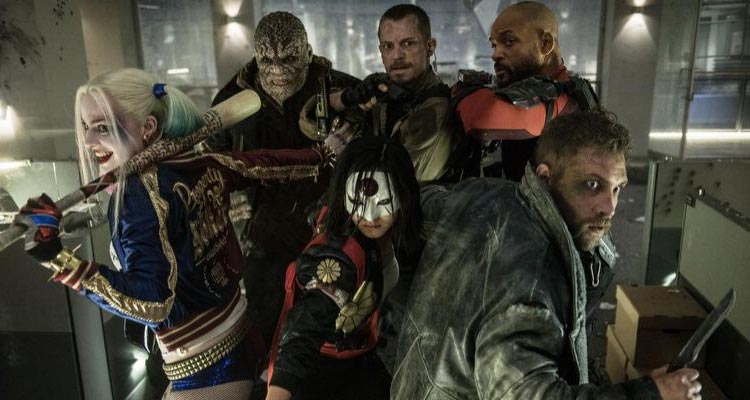
Q: It’s one of the most diverse casts we have seen in a long time. What were you thinking as you wrote the film?
David Ayer: I grew up in South Los Angeles; I grew up in a really diverse neighborhood. I was the only white boy in the neighborhood, that’s how diverse it was and it’s the world I know and it’s also the world we live in and I feel like on screen kids need to see people that look like them. My wife is a Latina and my kids are Latino, it’s important for them to see faces like theirs on screen and it’s a global business these days and we need to evolve in these times. It comes naturally to me but I think in diversity there’s strength and it needs to be a lot more inclusive on film and our world in general.
Q: For the Producers, how did you think this movie was getting made?
Richard Suckle: For me it was like look at this great cast assembled up here and this great filmmaker. The best I can equate it is being a manager of an all star team, you get to work every day and you get to see the greatest actors in the world all collaborating together. For me it was a producer’s dream because you can get to watch the best of the best go to work and I couldn’t ask for a better job.
Charles Roven: I would echo that by saying David took these great characters from the comics and wrote a great script and characterizations and we have this amazing group of actors made it even better, it was really a producer’s dream. Not all the time in terms of getting them serious sometimes but at the end of the day watching daily’s it couldn’t have been better.
SUICIDE SQUAD is now playing in theaters nationwide.
It feels good to be bad… Assemble a team of the world’s most dangerous, incarcerated Super Villains, provide them with the most powerful arsenal at the government’s disposal, and send them off on a mission to defeat an enigmatic, insuperable entity. U.S. intelligence officer Amanda Waller has determined only a secretly convened group of disparate, despicable individuals with next to nothing to lose will do. However, once they realize they weren’t picked to succeed but chosen for their patent culpability when they inevitably fail, will the Suicide Squad resolve to die trying, or decide it’s every man for himself?




